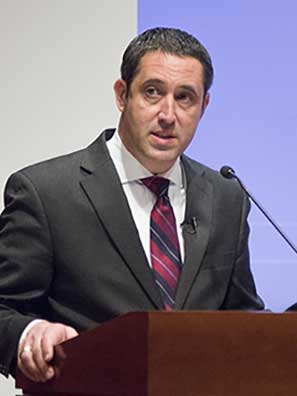Long-Term Obligations and the Texas Legacy Fund A Message from the Comptroller
Published October 2018
Early next year, the Texas Legislature will begin the arduous process of putting together a budget for the state’s next two fiscal years. They’ll have to juggle a host of competing demands, most of them seeming equally urgent. As always, there’ll be deals, debates and demonstrations on the Capitol steps.

As a former legislator, I know that writing the budget is like building an enormously complex puzzle — while hoping you have enough pieces. The exercise is always difficult, and it commands most of the Legislature’s attention until it’s complete.
As Texas comptroller, however, I’ve tried to draw our lawmakers’ attention to another financial issue — one sometimes overlooked in the grind of budget writing. I’m talking about a series of long-term obligations the state faces, such as state employee pensions, retired teachers’ health care benefits, the state’s prepaid tuition plan and deferred maintenance for aging state-owned buildings.
These obligations must be met, sooner or later, and the longer we wait the more money they’ll require. A number of states have found out about their spiraling costs the hard way, by having their credit ratings lowered — which raises the cost of borrowing and imposes even deeper difficulties.
Two years ago, our office issued a report on long-term obligations during the 2017 legislative session. This report updates its predecessor with new information, but the message remains the same: the state should begin paying down these obligations as soon as possible if we’re to maintain its financial health.
We’ve proposed a way to begin addressing this problem through what we call the Texas Legacy Fund — a permanent endowment for the state, created from a portion of the state’s rainy day fund, which generates investment earnings specifically for addressing long-term obligations. The plan is discussed in detail in this report.
Right now, the Texas economy is riding high. But all of us know that ups and downs are inevitable. Now’s the perfect time to tackle some of the thorniest issues facing the state. The sooner we start, the less it will cost us in the long run.
Glenn Hegar
Texas Comptroller of Public Accounts

